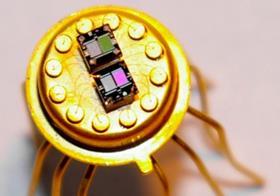
Scientists at the Frauenhofer Institute in Munich, Germany, have developed a new device which they believe could revolutionise the way fresh produce is monitored for ripeness.
The system, which harnesses metal oxide sensors to monitor the gas emitted by fruits and vegetables, could be used by consumers to help them tell whether or not a product is ripe.
Major suppliers might also be able to use the novel system, which uses volatile components to detect when the product is ripe and when it can be delivered.
'Customers want fresh food, which is neither unripe nor spoilt,' commented Dr Mark Bücking, who oversaw the project. 'The new system could check the safety and quality of foods reliably, quickly and economically.'
This could lead to a significant reduction in waste by allowing products to be shipped to retailers and wholesalers at precisely the right level of freshness, Dr Bücking added.
The new system brings together various technologies based on the use of metal oxide sensors similar to those used to close a car's ventilation vents when driving through a tunnel.
The Frauenhofer Institute team has already developed a prototype of the analysis equipment.
According to Dr Bücking, initial tests showed that the device measures volatile substances just as sensitively as conventional equipment used in food laboratories.
Researchers are now looking to optimise the system and adapt it to specific areas.
Dr Bücking believes the equipment could be introduced to the market at a four-digit euro price.






No comments yet